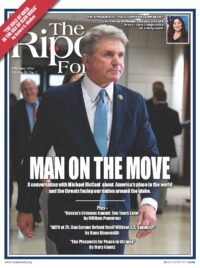 In the nearly 14 years since the Affordable Care Act was passed, we’ve seen dozens of legislative attempts to repeal it — all to no avail. Why? Despite divisive partisan messaging about “Obamacare,” the ACA clearly addressed flaws in the health insurance system and enacted numerous consumer protections. If these provisions were to be repealed, millions of Americans could have lower quality, lower value health insurance—or lose coverage altogether—virtually overnight.
In the nearly 14 years since the Affordable Care Act was passed, we’ve seen dozens of legislative attempts to repeal it — all to no avail. Why? Despite divisive partisan messaging about “Obamacare,” the ACA clearly addressed flaws in the health insurance system and enacted numerous consumer protections. If these provisions were to be repealed, millions of Americans could have lower quality, lower value health insurance—or lose coverage altogether—virtually overnight.
The ACA helped millions of people gain access to health insurance; uninsured rates dropped by more than half from 17.8 percent in 2010 to an all-time low of 7.2 percent in the second quarter of 2023. One key driver of this change was the ACA’s Medicaid expansion provision, which for the first time gave states the option to extend Medicaid to adults with incomes up to 138 percent of the federal poverty level — with the federal government covering 90 percent of the cost. The ACA also provided generous premium tax credits that made individual marketplace coverage accessible for millions; additional tax credit expansions have bolstered insurance rates even higher since the ACA’s passage.
The ACA helped millions of people gain access to health insurance; uninsured rates dropped by more than half from 17.8 percent in 2010 to an all-time low of 7.2 percent in the second quarter of 2023.
Both of these programs enabled by the ACA—Medicaid expansion and tax credits—support many working adults with few alternatives for coverage. For example, 42 percent of people on Medicaid report working, while many of the remaining enrollees report not working due to a disability or parenting responsibilities. And 1 in 4 marketplace enrollees are small business owners or self-employed. For these people, repealing the ACA would have dire consequences. In 2019, the Urban Institute estimated that ACA repeal would cause 20 million people to lose their coverage, increasing the uninsured rate by a whopping 65 percent.
Beyond Medicaid and marketplace enrollees, all Americans with health insurance stand to benefit from the ACA’s many consumer protections. For example, the ACA prohibits annual and lifetime coverage limits. Prior to the ACA, nearly 60 percent of people enrolled in employer-sponsored insurance and 90 percent of people enrolled in individual coverage were in plans with lifetime limits. About 20,000 people reached their lifetime limits each year, and 18 million people were in plans with annual dollar limits. There are countless cases of people who, without ACA protections, would have reached their lifetime coverage limit due to only one major health crisis or condition. One mother shared the story of her newborn needing intensive care; without the ACA, he would have reached his plan’s lifetime coverage limit at just 3 months old.
The ACA also guarantees coverage for essential health benefits, including maternity care, mental health services, and preventive care, and it sets limits on how much people can be charged based on their health status, gender, and age. In 2018, about half of nonelderly adults had a preexisting condition that could have been subject to underwriting, and more than 1 in 4 nonelderly adults could have been declined coverage altogether for their preexisting conditions. And, nearly 4 years into the COVID-19 pandemic, repealing the ACA would mean that 1 in 13 consumers with long COVID could be subject to discriminatory pricing and coverage restrictions that would make these estimates even higher.
Beyond Medicaid and marketplace enrollees, all Americans with health insurance stand to benefit from the ACA’s many consumer protections.
In addition, the ACA requires plans to spend 80 to 85 percent of premium dollars on health care, protecting consumers from getting a bad deal. By allowing young adults under age 26 to stay on their parents’ health insurance plan, the ACA contributed to a 56 percent reduction in the uninsured rate among adults aged 19 to 25 from 2010 to 2022.
It’s no surprise that attempts to repeal the ACA have failed; its key provisions are popular. The majority of Americans consider it “very important” to keep the following provisions in place:
- Banning denying coverage to and charging more for people with preexisting conditions and pregnant women;
- Prohibiting annual and lifetime limits;
- Requiring plans to offer no-cost preventive care;
- Allowing young adults to stay on their parents’ insurance plans; and,
- Subsidizing coverage for people with low and moderate incomes.
Given this context, it’s easy to see that attempts to repeal the ACA would not only prevent millions of Americans from accessing needed medical care—they would also be a political disaster.
To be clear, the ACA was just the start. Policymakers still have much more work to do to make health care affordable and accessible. We as a nation need critical reforms that address unreasonably high drug prices, hospital and insurance consolidation, and high health care costs. But the path forward isn’t to take away consumer protections and coverage expansions and push millions off their insurance. We need progress toward more access and affordability—not regression.
Nicole Rapfogel is a health policy analyst at the Center for American Progress.




